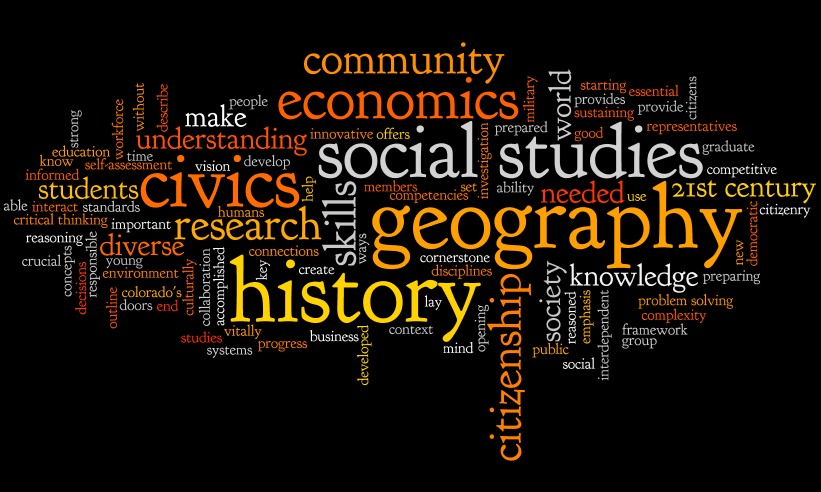Social Studies
Soc ial Studies
ial Studies
The main purpose of the Social Studies curriculum is to develop graduates who have the knowledge, skills, and competencies to be active, informed citizens.
An informed citizen understands key historical, geographical, political, economic, and societal concepts, and how these different factors relate to and interact with each other. Students cannot gain this understanding passively through a broad survey of topics and or by receiving knowledge from authoritative sources. Students must build deep understandings and create their own knowledge through investigations into interesting, open-ended questions, debating and discussing historical and contemporary issues, and developing and supporting their own hypotheses, solutions, and conclusions.
Social Studies offers students the opportunities to build those understandings and knowledge.
It draws on topics from disciplines within the:
- humanities and social sciences,
- primarily history,
- geography,
- political science, and
- economics
With contributions from other disciplines such as:
- sociology,
- psychology
- anthropology
Uniting these disciplines is their focus on human activities, behaviors, and interactions with both other humans and the environment.
While Social Studies draws on topics from many different disciplines, the proposed curriculum places greater emphasis on developing disciplinary thinking skills through six major thinking concepts:
- Significance,
- Evidence,
- Continuity and change,
- Cause and consequence,
- Perspective, and
- Ethical judgment
These thinking concepts were originally developed to outline historical thinking, but have been adapted to include some of the ways that geographers, economists, and political scientists think about topics.
Students can apply these concepts in today’s world of easy access to information about virtually any topic from sources around the globe. This access to information of uncertain quality and accuracy makes it more important than ever to teach students the skills needed to gather, assess, analyze, and synthesize information and ideas from multiple sources. Once students have gathered and analyzed information, they will use it to solve problems, make decisions, and communicate their ideas effectively.
Through the Social Studies curriculum, students will have opportunities to explore and better understand their own identity, perspectives, and values as well as develop the competencies that encourage active, informed citizenship. They will develop the ability to think critically, consider different perspectives and ideas with an open mind, and disagree respectfully with those who have different opinions or points of view. They will be empowered to stay informed about public policy and take action on issues important to them.
The knowledge, skills, and competencies developed throughout the Social Studies curriculum will prepare students to participate in society as responsible citizens.
Contacts
| Last Name | First Name | Email Address | Job Title |
|---|---|---|---|
| McCallum | Dave | mccallum_d@surreyschools.ca | Department Head - IB Teacher |
| Barber | Deanne | barber_d@surreyschools.ca | Teacher |
| Clarke | Cassandra | clarke_c@surreyschools.ca | Teacher |
| Decaire | John | decaire_j@surreyschools.ca | Teacher |
| Houchen | Gord | houchen_g@surreyschools.ca | Teacher |
| Hughes | Vanessa | hughes_v@surreyschools.ca | Teacher |
| Kyei | Isaac | kyei_i@surreyschools.ca | Teacher |
| Mleziva | Peter | mleziva_p@surreyschools.ca | Teacher IB |
| Quashie | Cheryl | quashie_c@surreyschools.ca | Teacher |
| Shields | Stephanie | shields_s@surreyschools.ca | Teacher |
Quick Links
Historical Thinking Project
Grades 8-9 Curriculum
Geographic Thinking Skills



